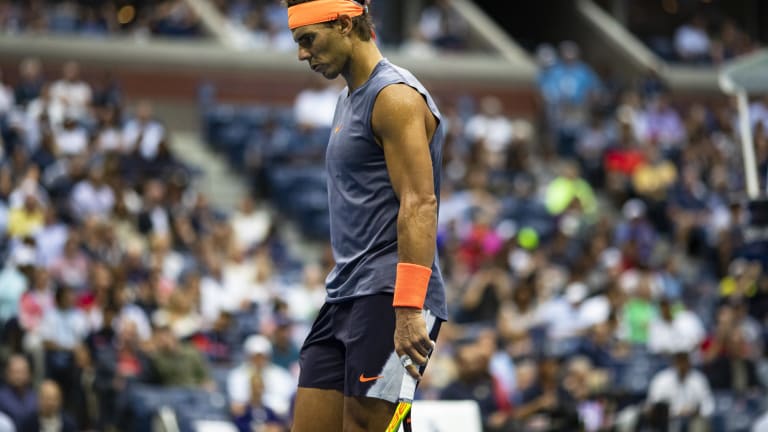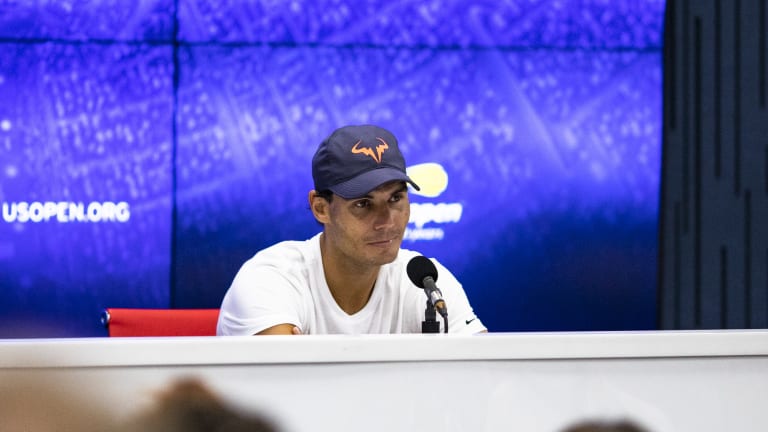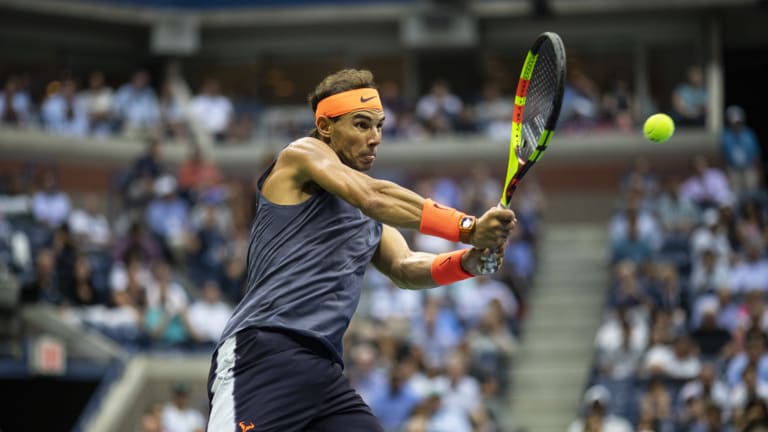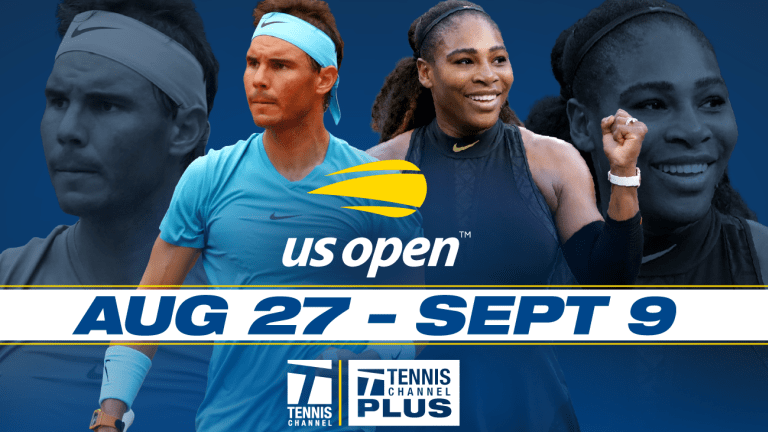Rafael Nadal's five-set win over Dominic Thiem, a US Open classic:
Rafael Nadal's 2018 Slam season ends in defeat, but it was an epic run
By Sep 08, 2018Wimbledon
Debating best-of-three sets vs. best-of-five
By May 21, 2021Wimbledon
The Tennis Conversation: Tim Henman
By May 21, 2021The Pick: Lorenzo Musetti vs. Sebastian Korda, ATP Lyon second round
By May 18, 2021In Geneva, Roger Federer loses clay-court comeback to Pablo Andujar
By May 18, 2021The Pick: Jannik Sinner vs. Aslan Karatsev, ATP Lyon first round
By May 17, 2021Officials deny that 2022 Australian Open could move
By May 17, 2021Week in Preview: Serena, Federer lead stars tuning up for French Open
By May 17, 2021Nadal finds the final answer for Djokovic in roller coaster Rome final
By May 16, 2021Rafael Nadal battles past Novak Djokovic to win Rome for 10th time
By May 16, 2021Rafael Nadal's 2018 Slam season ends in defeat, but it was an epic run
Looking back at Rafa’s wins, losses, and perspective after the ma
Published Sep 08, 2018
Advertising
Advertising

Rafael Nadal's 2018 Slam season ends in defeat, but it was an epic run
© Anita T Aguilar
Advertising

Rafael Nadal's 2018 Slam season ends in defeat, but it was an epic run
© Anita T Aguilar
Advertising

Rafael Nadal's 2018 Slam season ends in defeat, but it was an epic run
© Anita T Aguilar
Advertising

Rafael Nadal's 2018 Slam season ends in defeat, but it was an epic run